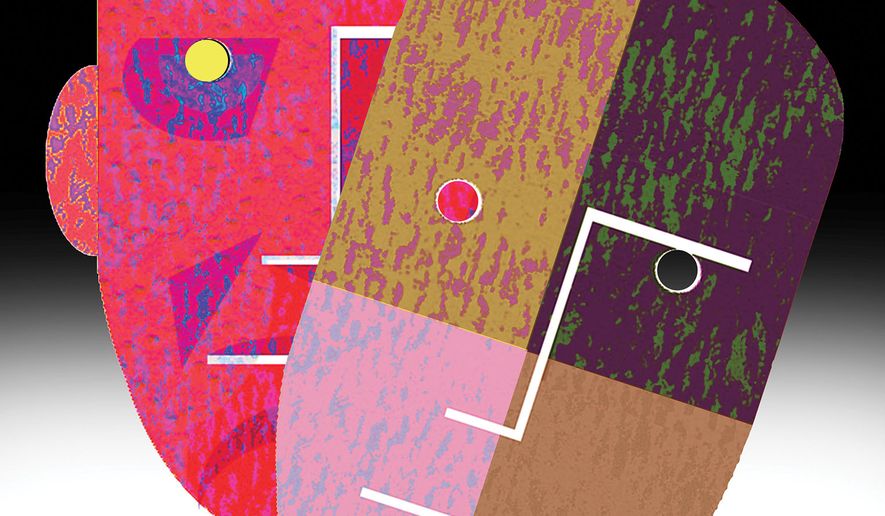OPINION:
The assassination of Charlie Kirk has thrown into stark relief the escalating tensions around America’s culture wars, which are playing out in classrooms at the higher education and K-12 levels. After years of debate over critical race theory, gender ideology, and diversity, equity and inclusion, schools from coast to coast are now pushing the latest trend: ethnic studies.
This should concern all of us.
Marketed as a fresh academic discipline, ethnic studies is a repackaging of the same liberal agenda, combining elements of critical race theory, gender theory and DEI into one framework. Curriculum activists, with the backing of lawmakers, weave this ideology into classrooms by touting it as a simple exploration of history, culture and the experiences of “historically marginalized” groups.
The focus is typically on groups that schools classify as marginalized: Black, Hispanic, Asian American, Indigenous women and LGBTQ people. On the surface, it sounds benign, even beneficial, maybe.
In practice, many courses — especially the “liberated ethnic studies” models — are built on neo-Marxist frameworks. They reduce complex histories into a rigid oppressor-versus-oppressed narrative and often promote anti-American and even antisemitic sentiment.
Oregon, for example, enacted House Bill 2845 in 2017, requiring instruction on the “histories, contributions and perspectives of ethnic minorities and social minorities.” The advisory group tasked with drafting ethnic studies standards for K-12 social science went further, framing the subject around “identity, race, ethnicity, community, religion, nationality and culture” to center marginalized groups, including American Indians and Black Americans, to immigrants, refugees and LGBTQ people.
As part of the state’s ethnic studies integrated social science standards, the guiding themes “identity, resistance, resilience, histories, and civic engagement” revolve around oppression and resistance. Students are directed to view the world through injustice and explore ways to “resist.”
The standards also aim to help students “develop a critical lens to see the world, and to be politically, socially and economically conscious about their personal connections to local and national history by understanding systems and power at the root of American society.”
In place of neutrality, these courses emphasize advocacy, steering students toward particular historical interpretations and encouraging activism. The curriculum is designed not just to inform about a particular narrative but also to mobilize based on the set of facts provided.
In 2021, California became the first state to mandate ethnic studies for all high school graduates, turning the state into ground zero for the fight. Its model curriculum, criticized for its alleged antisemitic content, has prompted lawsuits and political backlash. As of March, no state funding had been allocated, leaving enforcement uncertain even as many districts move ahead.
California’s state-approved curriculum explicitly lists one of its guiding principles as aiming “to critique empire-building in history and its relationship to white supremacy, racism, and other forms of power and oppression.” That’s not neutral history; that’s an ideology.
In 2023, Minnesota mandated that every high school offer ethnic studies by 2026, embedding it into state standards. The law defines the subject as the study of race, ethnicity and indigeneity with a focus on marginalized groups, where “race and racism have been and continue to be social, cultural, and political forces.”
Under the law, an ethnic studies course can count toward graduation in multiple subjects and has been added as a fifth “foundational strand” alongside history, geography, economics and civics. The course’s framework is built on three themes: identity, resistance and methodologies to “eliminate injustices,” encouraging students to interpret history through power, oppression and activism.
Ethnic studies is sold as promoting tolerance and cultural understanding. Yet, beneath the layers of jargon, it’s a Trojan horse for activism in the classroom, dividing students along lines of race and ethnicity and fostering self-segregation, victimhood and activism.
In a society already deeply polarized, introducing politically charged social justice frameworks to youngsters risks pushing students further into division. Supporters insist it is about “uplifting marginalized voices,” but this assumes that others want to silence young Americans based on race, a false and divisive premise.
Discrimination should not define today’s classrooms, yet the curriculum speaks for itself. The reality is that ethnic studies embeds this worldview.
• Kendall Tietz is an investigative reporter for Defending Education.




Please read our comment policy before commenting.